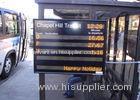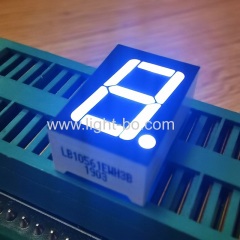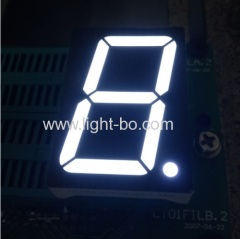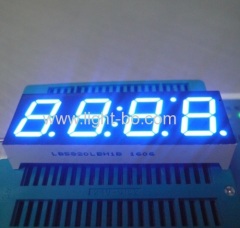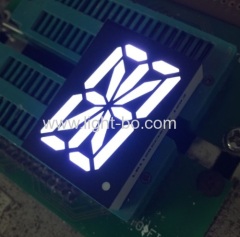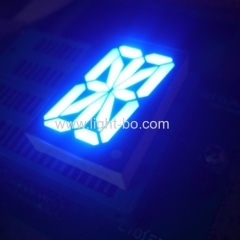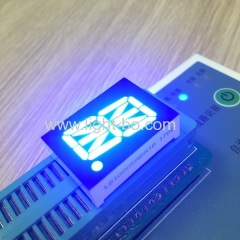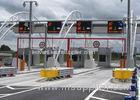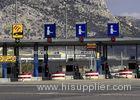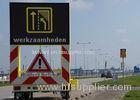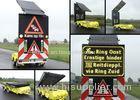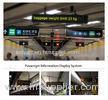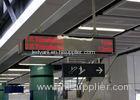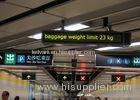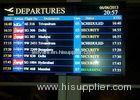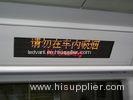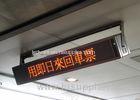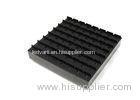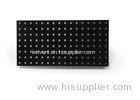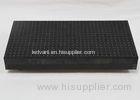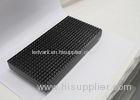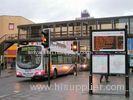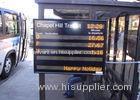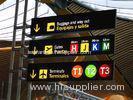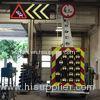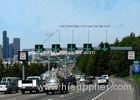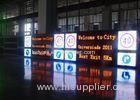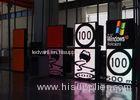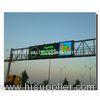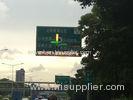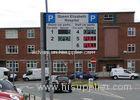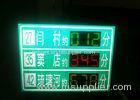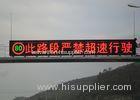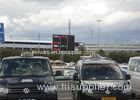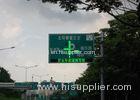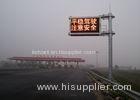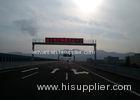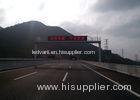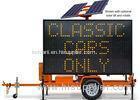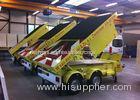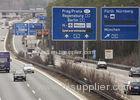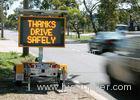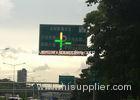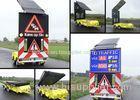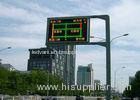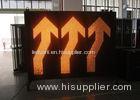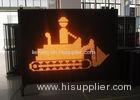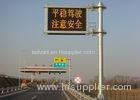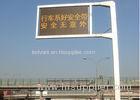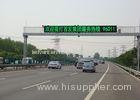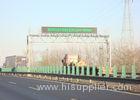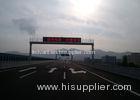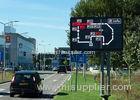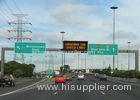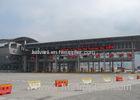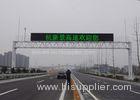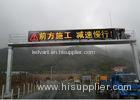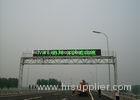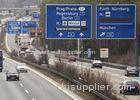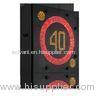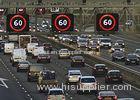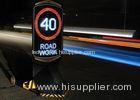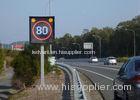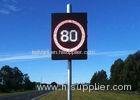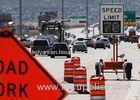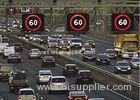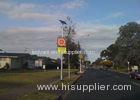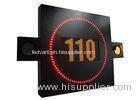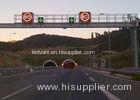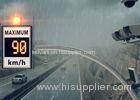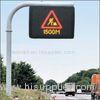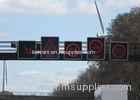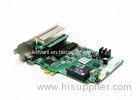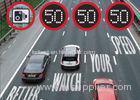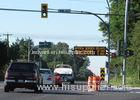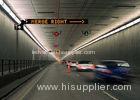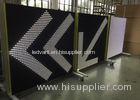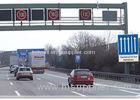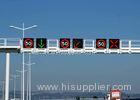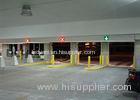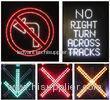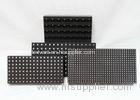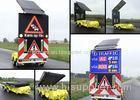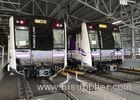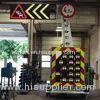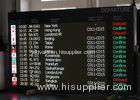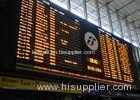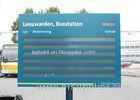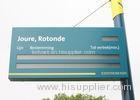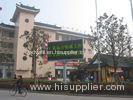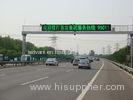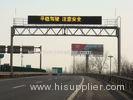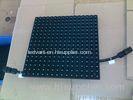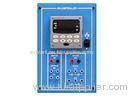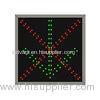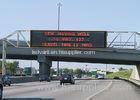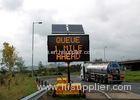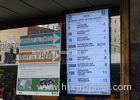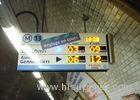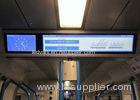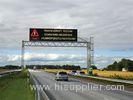|
Yaham Optoelectronic Co., Ltd
|
High Resolution Digital Bus LED Display Bus Information Display
| Place of Origin: | Zhejiang, China (Mainland) |
|
|
|
| Add to My Favorites | |
| HiSupplier Escrow |
Product Detail
P10 full color Bus station led display<
P10 full color Bus station led display
Specifications:
1) high definition
2) easy to install and control
3) long life span
4) good after-service
Usage Considerations of LED Display
1. Switching sequence
1) screen switching sequence:
on: first turn on the computer, then screen
off: first shut off screen, then computer.
2) Interval of switching LED display must be greater than 1 minute.
2. Ambient temperature
When ambient temperature is too high or cooling condition is bad, users had better not to turn on the screen for a long time.
Screen shall be installed in temperature from-10 °C to 40 °C.Over environment temperature range, temperature control equipment must be installed.
It is forbidden to install LED display near any heat source.
3. Ambient humidity
When installing screen, ambient relative humidity should be in the range from 30% to 70%.It is prone to get static electricity when the indoor humidity is below 30%;
when the indoor humidity is higher than 70%, electronic components are easy to get damp.
4. Corrosive gas environment
Please do not install the display in corrosive gas environment containing acid or base components, such as chemical warehouse.
5. Electromagnetic radiation environment
Please do not install display when electromagnetic radiation and radio frequency radiation environment is over field strength 5V/m.
If necessary, isolation treatment should be taken.
6. Steady power supply
If necessary, users have to install surge switches in the distribution box and ground fault protection to avoid lightning strikes.
Do not use the display in strong lightning and other severe weather.
7. Conductive material is strictly prohibited to contact display, such as metal dust and water.
Screens are placed in the environment of low dust as far as possible, otherwise it will affect the display effects, as well as damage the circuit.
If exposed to water for various reasons, please immediately power down until the screen unit dry.
8. Controlling colors
Do not display a long time in a white, red, green, blue or other bright screen, because this will affect the display lifetime.
9. Controlling time
LED display at least rest 2 hours a day. Normally turn on the screen at least twice a week or more (Especially in the rainy season it is necessary to turn on the display every day).
And it maintains more than 2 hours every time.
10. Regular overhaul
LED display requires regular inspection to check circuit damage. If it does not work, change it in time. If circuit damages, it should be repaired or replaced.
11. Security alerts
Users must ensure safety while installing Led display. The factory only offers products and reference programs of frame fixation.
Users can ask relevant authorities to confirm according to local conditions and field condition
| Technical Parameter | Pixel Pitch | 10mm |
| Display Color | Amber | |
| Display Language | Dutch& English | |
| Brightness Level | >5000cd/ | |
| Messages Data Base | From Bus Controller | |
| Display Function | Normal text,bold text,horizontal scroll,flash etc | |
| Cabinet Material | Aluminium with black coating | |
| Viewing Angle | 120° (W), 120° (H) | |
| Power Supply | 19-32Vdc | |
| Storage Temperature | -7 to 65 Celsius degree | |
| Normal Working Temperature | -20 to 65 Celsius degree | |
Competitive Advantage:
Data on the position of the vehicle is transferred to the main computer, which then estimates the arrival time at each stop on the route and then sends this information to the displays at bus stops. The signal from GPS transmitters installed in vehicles is sent via GPRS to a server that compares the real location with the planned location of the vehicle-in line with the schedule. If discrepancies occur system continuously sends information via the Internet to the computers controlling the boards at bus stops. In this way, information for passengers waiting at bus stops is always current. Inside the vehicle system modifies the arrival time at next stops based on data from the GPS.

